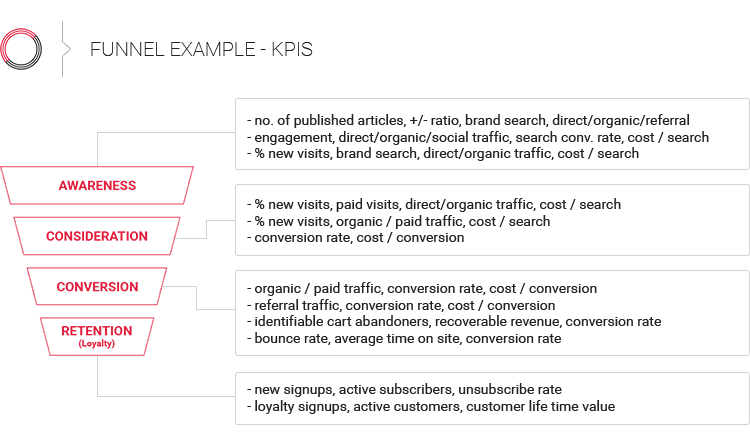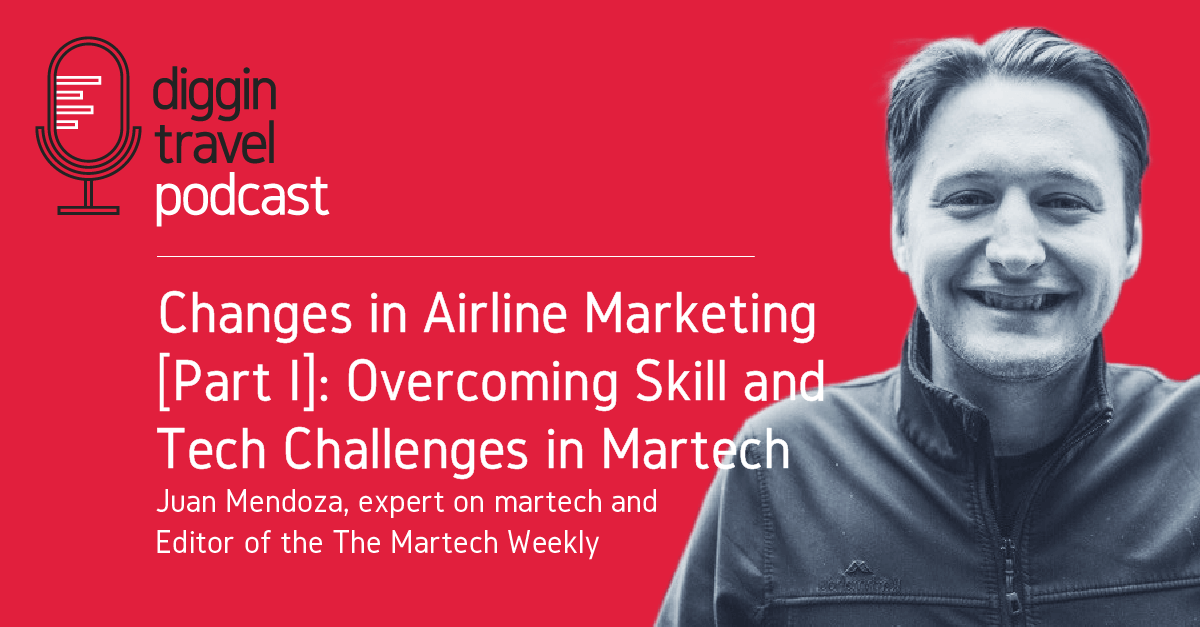Select Sidearea
Populate the sidearea with useful widgets. It’s simple to add images, categories, latest post, social media icon links, tag clouds, and more.


hello@youremail.com
+1234567890
+1234567890
Populate the sidearea with useful widgets. It’s simple to add images, categories, latest post, social media icon links, tag clouds, and more.


Iztok Franko

Let’s talk about airline martech!
But first, let’s try to define what martech is. As I often do lately, I asked my AI assistant for help, and here’s the definition it provided: Martech, short for marketing technology, refers to the range of digital tools and software used to optimize and automate marketing processes.
If you’re a loyal follower of Diggintravel content, then you know this platform is all about the intersection of marketing, technology, UX, and analytics. So, in a way, we’ve been talking about martech for a while, just not directly or calling it by that name.
Airline digital marketing and ecommerce have evolved significantly over the last couple of years. Marketing and digital teams are increasingly taking over the technology (the martech stack) from IT, where it typically resided in the past. This shift has a significant impact on organization, technology, and the skills marketers need to manage martech. Along with martech, terms like marketing ops (short for marketing operations) and other new concepts have emerged.
So, for a marketer, there are a lot of new things to learn and understand. As always, we are here to help you, and I can’t think of a better person to explain everything about airline martech than Juan Mendoza. Juan is the founder and editor of Martech Weekly and a person with a strong airline and marketing background.
Listen to the new episode of the Diggintravel Podcast to learn about Juan and airline martetch, or read on for key highlights from our talk:
And don’t forget to subscribe to the Diggintravel Podcast in your preferred podcast app to stay on top of the latest airline martech, digital marketing, data science and AI trends!
When we talk to experts, it’s always interesting to get an external view on airline technology challenges. Juan compared the airline industry’s technological landscape to that of banks, noting similar challenges due to legacy infrastructure. He explained the intricate connection between various components of airline operations and their ecommerce systems, emphasizing the difficulty in updating these systems:
The technological challenge is very interesting because like banks, airlines a lot of the time have legacy infrastructure that is very hard to rip and replace. I’ve worked with a few different airline backend ecommerce systems, and often the way they’re coupled with the delivery services, so the actual fulfillment – from everything, from your seat number to the food that is being preordered for you right through to priority boarding and your loyalty status – all of that is coupled to ecommerce, and it’s very hard to untangle that.
Of course we couldn’t not talk about personalization, the holy grail of airline marketing and where the challenges of connecting legacy IT systems and modern airline martech are exposed the most. Juan highlighted the difficulty in accessing data from legacy systems, which were built around the time the internet was becoming mainstream. Age and complexity of legacy systems pose significant challenges in implementing modern personalization strategies:
What I find with a lot of personalization challenges is just getting access to some of those legacy systems. A lot of airlines were built around the same time when the internet came online, towards the early 2000s. So these technologies are almost 20 years old now. I think about that a lot and go, if you want to do, for example, dynamic fare pricing, or if you wanted to look at your ancillary and provide a recommendation to your customer, more often than not in airlines, the challenge is just getting access to the data that’s facilitating those purchases so you can run those recommendations.
Juan acknowledged the significant effort required for airlines to transition to more modern, flexible technology platforms. He notes that while the industry is moving towards this change, it still has a considerable journey ahead:
I would say on the tech side of things, we’re still a while away. I think it takes a lot of courage for an airline to re-platform into say a more modern data stack that is using not the legacy ecommerce systems they’ve used in the past, but something that’s way more flexible and much more easy to integrate with. I think we’re still a little while away from seeing that in the airline industry.

Juan addressed the ongoing issue of the skills gap in the field of martech, especially within the airline industry. He noted that many professionals in this area have transitioned from either mainstream marketing or technology, highlighting the lack of a clear career pathway into martech. This intersection creates unique challenges in the industry:
The skills gap, again, interesting. It’s one of those perennial challenges because martech, if you talk to most people that are in this industry, they kind of fell into it, either from mainstream marketing or from technology. It’s one of those intersections where there’s no clear pathway into careers, which is a challenge in itself.
Juan’s observation underscores the evolving nature of careers in martech, particularly in complex sectors like the airline industry. It points to the need for more structured career paths and training programs to fill this gap and meet the growing demand for skilled martech professionals.
Juan then delved into the emerging role of marketing operations, which is becoming increasingly crucial in the martech landscape. He described individuals in this role as possessing a unique blend of strategic marketing insight and a deep-rooted interest in technology. Their skillset spans from understanding customer personas and segmentation to implementing technical solutions like email automation and A/B testing:
What I get a sense from with marketing operations is you get these unique people that have both the interest in the strategic part of marketing – like, who is our customer? What’s the persona? How do we do the segmentation? What’s the message? What’s the value proposition? Asking all of those strategic marketing questions, but with a deep-rooted desire to learn about the technology. Like, how do we integrate X and Y thing? How do we set up an email automation flow? How do we ensure that when we’re running an A/B test, we can see statistical significance?
Juan further explained that marketing ops professionals are adept at bridging the gap between business strategy and technical execution. This role is especially prevalent on the West Coast of the U.S. and is essential for businesses that require personnel capable of engaging in both high-level strategic discussions and detailed technical planning:
All of those questions are a part of that marketing ops role, which is I would say mostly right now very much focused on the West Coast of the U.S. It’s a fairly new role, still emerging. But the idea is that businesses are increasingly needing this position in a company where a person can wear both hats. They can talk at both levels. They can go, “Hey, here’s our business case, here’s the strategy, these are the specific comms we want to get in front of our customers, or personalization campaigns, etc.,” and they can have those strategic business-level conversations, but then they can go back to their team and go, “All right, what’s the service map? What’s the datapoints we need? Who’s pulling the SQL for that?” All of those technical questions that actually make it happen.
Discussing the applicability of this role in the airline industry, Juan observed that in places like Australia, the management of the martech stack often falls to CRM managers, heads of digital, or analytics managers. He notes the potential value that marketing ops could bring to airlines, streamlining the coordination between product managers and technical teams:
What I see from that is B2B seems to be the locale for this marketing ops / technical marketer role and the trajectory of this new type of position, but I can see the value in airlines. It’d be interesting to hear your view on this, but what I see particularly in Australia with airlines is that the people managing a lot of the martech stack are either CRM managers, heads of digital, or what you might want to call analytics folks, analytics managers. It’s shared between those people. And then you have product managers and product owners that request things from those folks, like, “Hey, can we build a campaign?”
Juan’s insights highlight the evolving nature of roles within martech, pointing to the increasing importance of a blend of strategic and technical skills to address the unique challenges in sectors like the airline industry.

Reflecting on the airline industry before and after COVID-19, Juan talked about the transformation that has occurred. He notes that while airlines used to be burdened with numerous product owners and managers, each with their own demands, the pandemic has led to a more streamlined and agile structure:
Airlines suffer a lot because you have a lot of different product owners and managers wanting different things out of the experience. I remember one time – this is before COVID. I think COVID has done a massive transformation work on airlines themselves. I find a lot of airlines these days are much slimmer, much more agile than they were before. But I remember before COVID, oh my goodness, an incredible amount of people. We would have 20 product owners, all vying for the Manage Booking portal. And they had all their different A/B tests they want to run, all their different programs.
Juan highlighted the inherent challenges in prioritizing various marketing experiments and initiatives within airlines. He described the difficulties faced when numerous product owners bring their distinct priorities to the table, creating a situation where it’s challenging to determine what should be implemented first:
We were kind of a COE, a Center of Excellence/Experimentation in this airline, and what I found was, man, how do you prioritize 20-30 different experiments on a single page? You can’t. How do you prioritize? What’s your methodology when all of those product owners have their own prioritization of things they’re doing, and they all bring them to you and go, “Can you ship this? Can you deliver? Can you ensure that it meets our criteria?” You can’t.
Highlighting a common issue in airlines, Juan pointed out the competition and conflicts that arise due to the multifaceted nature of airline operations. He emphasized how this complexity makes it challenging to implement changes and bring new initiatives to market:
I find in airlines, because it’s just so multifaceted, you do have, more than other businesses, this competition to get yourself even out into market. It’s really hard just to get that out into market because of the conflicts and all the other things that are running concurrently as well. […] I think it’s really valid to say that most teams suffer purely because there’s too many cooks in the kitchen and everything’s a high priority, and it’s very hard to delineate which should go out first.
If you want to learn from leaders like Juan about how to build airline martech and modern airline marketing or want to be the first to know when our next Airline Digital Talk will be published, please:
I am passionate about digital marketing and ecommerce, with more than 10 years of experience as a CMO and CIO in travel and multinational companies. I work as a strategic digital marketing and ecommerce consultant for global online travel brands. Constant learning is my main motivation, and this is why I launched Diggintravel.com, a content platform for travel digital marketers to obtain and share knowledge. If you want to learn or work with me check our Academy (learning with me) and Services (working with me) pages in the main menu of our website.
Download PDF with insights from 55 airline surveyed airlines.
Thanks! You will receive email with the PDF link shortly. If you are a Gmail user please check Promotions tab if email is not delivered to your Primary.
Seems like something went wrong. Please, try again or contact us.


No Comments